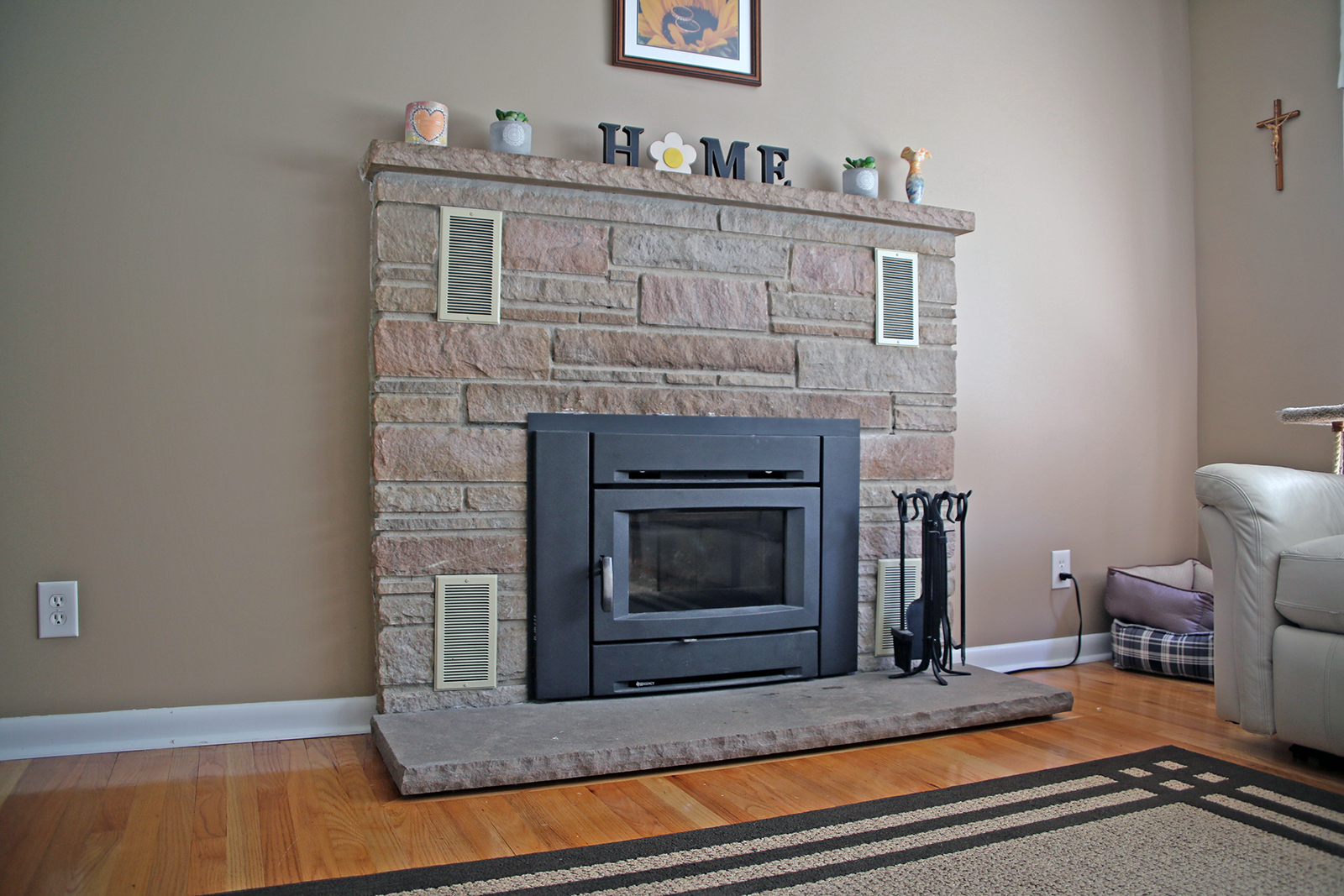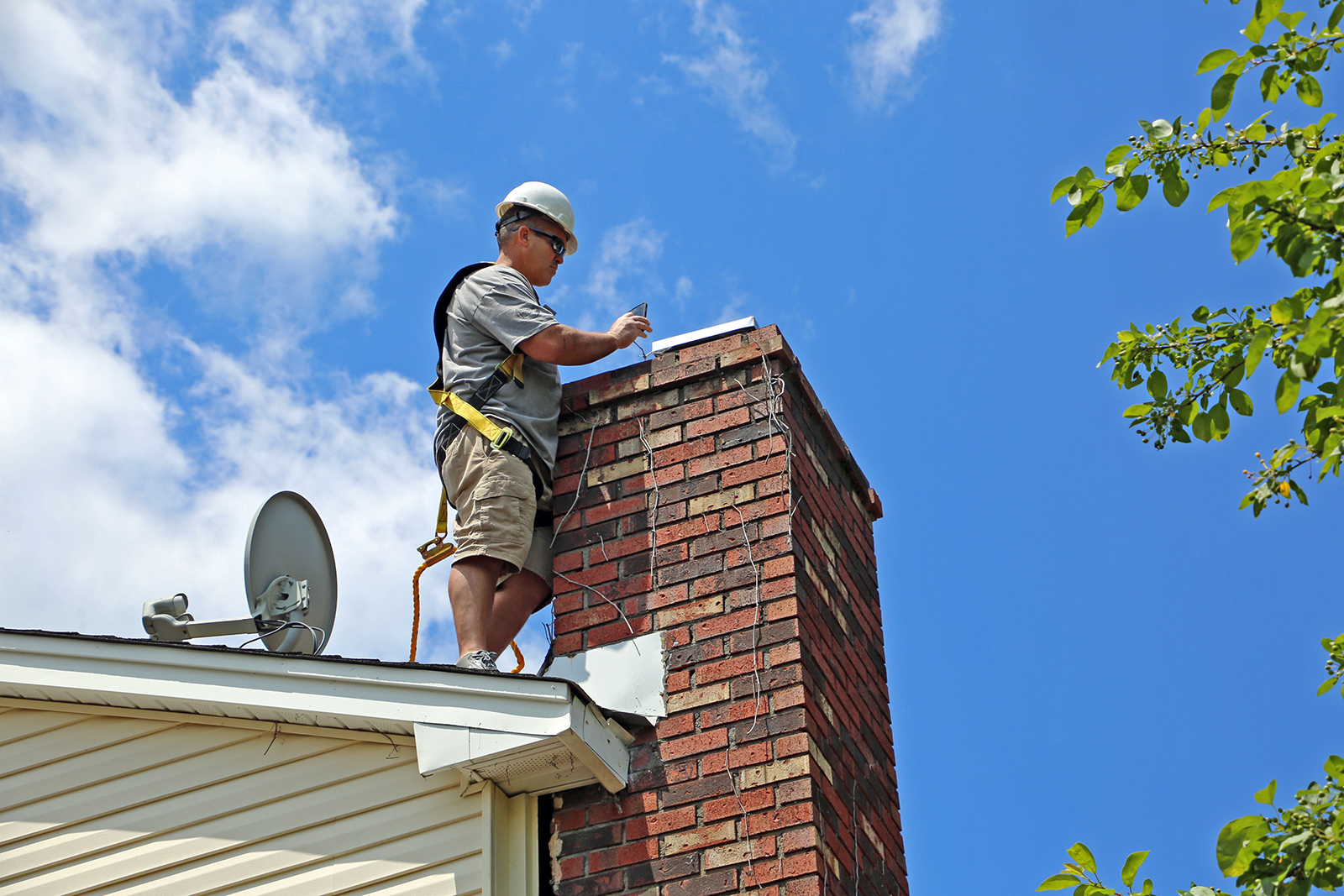Chimney Basics Every Homeowner Needs to Know
The chimney is an integral safety feature of your home. Whether you use your fireplace or heating stove a few times per year or every day during the winter, there are a few basics you need to know. Here are six chimney basics homeowners should know about their chimney.
Keep Out Water
Moisture is the Achilles heel of your chimney. It can damage the masonry and rust internal components, which increases the risk of fire. Water leaks usually start small seeping through spalling bricks, damaged flashing, broken chimney cap, warped damper, or other chimney damage. You may notice water in the firebox, cracks in the flue liner, or stains on the ceiling and walls around the fireplace. These are signs of possible water intrusion and should be repaired even if it appears to be a small amount.
 Check for Obstructions
Check for Obstructions
When functioning normally, the chimney vents smoke and exhaust from the fireplace. A chimney cap will help keep moisture, small animals, and debris out of the chimney. However, its location perched above the roof is a welcoming respite for all that nature offers. When the cap is damaged or missing, it’s not unusual for small animals like birds, squirrels, and raccoons to take refuge in the flue. Also, stormy weather and windy conditions can cover the vent with leaves and twigs. A flue obstruction can cause toxic fumes to back up into the living space. Therefore, homeowners must inspect the chimney cap and replace it when damaged.
Look for Brick Damage
Another chimney basic every homeowner should know is to walk around and inspect the bricks. You may see your chimney daily, but you need to get up close to look for cracked or missing bricks and mortar. You may even notice chunks of bricks and mortar missing. These are all signs of water damage. Some water damage like efflorescence is visible from a distance. It turns your bricks an unsightly color, usually white. Efflorescence occurs when moisture penetrates deep into the bricks, causing the salts to rise to the surface. It is important to repair brick damage as soon as possible to prevent a structural collapse.
Use Seasoned Firewood
The type of wood you burn in the fireplace can affect the performance of your chimney. You should only burn firewood that has been “seasoned” for at least six months. Seasoned wood has a low moisture content. You will enjoy a hotter, lingering fire with less smoke and creosote. On the other hand, “green” or fresh cut wood has a significant moisture content. This type of wood will burn faster at lower temperatures with more smoke and creosote.
Clean the Chimney
Cleaning the chimney at least once per year is a chore that most homeowners don’t like to do, but it is necessary to reduce health and safety risks. The number one cause of residential structure fires is excessive creosote in the chimney, according to the National Fire Protection Association (NFPA). Fortunately, hiring a CSIA Certified Chimney Sweep® to do this for you is easy and affordable.
 Chimney Inspection
Chimney Inspection
The Chimney Safety Institute of America (CSIA) recommends homeowners that use solid or liquid fuel heating appliances like a fireplace or heating stove, have an annual chimney inspection. A chimney inspection will help uncover minor damages before they become more expensive repairs. It will also help prolong its useful life.
Contact The Chimney Professionals
At Mercer County Chimney Services we provide services such as Annual Chimney Inspection and Cleaning, Chimney Repair, and installation of new fireplaces, stoves and inserts. We are the experts when it comes to chimney repairs, chimney liners, chimney cleaning, chimney caps, chimney crowns and more.
Call the licensed and insured technicians at Mercer County Chimney Services today, 609-802-5288
Call To Schedule Your Appointment
Mon – Sun 7:00 am – 7:00 pm
Located in Hamilton, NJ 08610
We Serve All of Mercer County, NJ



